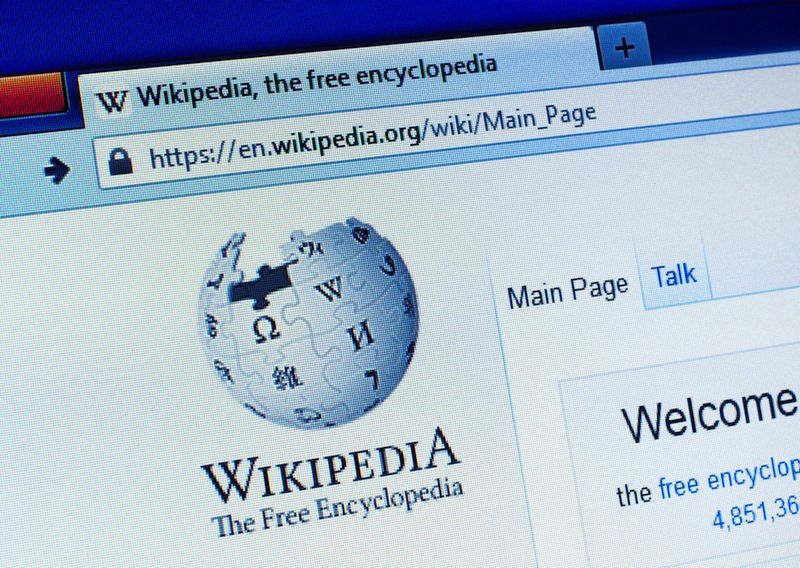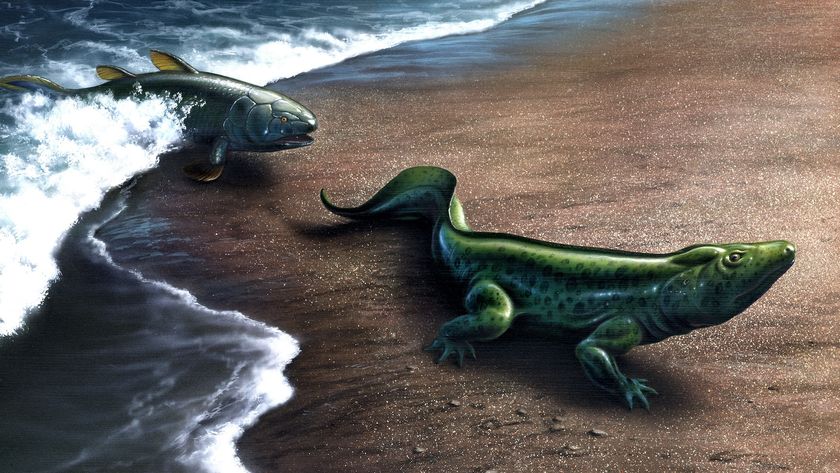
Depending on what day you search, Wikipedia may say global warming is "a sham" or that there is "a consensus view that it is man-made."
That kind of flux isn't unusual: Wikipedia pages on hot-button issues such as global warming and evolution may change much more frequently than pages on less controversial subjects, according to a new study.
The findings raise the question: Which science pages on Wikipedia can be trusted? [Wikipedia Edit Wars: The Most Hotly Contested Topics]
Reliability question
Wikipedia relies on the wisdom of the crowds, allowing anyone to create or edit any Wiki page while others go in and tweak, update or delete revisions. A 2005 head-to-head study showed the information provided on Wikipedia is almost as reliable as that of the benchmark, Encyclopedia Britannica. A 2011 study found that Wiki articles were on a par with professionally edited databases for health care professionals, such as the Physician Data Query.
But not all of Wikipedia's science pages are equally reliable.
In the current study, which was published Aug. 14 in the journal PLOS ONE, Adam Wilson, a geographer at the University at Buffalo in New York, and his colleague Gene Likens, a professor of ecosystem studies at the University of Connecticut, looked at three hot-button issues: evolution, global warming and acid rain. They compared them to four topics that are less politically charged: continental drift, general relativity, the Standard Model and heliocentrism (the model in which the Earth and other planets revolve around the sun).
Sign up for the Live Science daily newsletter now
Get the world’s most fascinating discoveries delivered straight to your inbox.
The researchers found that the Wikipedia pages on the controversial topics were edited much more frequently than less publicly contentious issues, with global warming being edited two to three times a day. In some cases, users had deleted huge chunks of text on the global-warming page, they discovered. By contrast, the Wikipedia page on the Standard Model, the reigning particle-physics model, has about 10 words changed every few weeks.
"The content in Wikipedia pages, can be, for some pages, quite dynamic, meaning multiple times a day, there are some significant changes where people will potentially delete an entire paragraph or add a paragraph," Wilson told Live Science.
Some changes were the opposite of subtle, such as deleting an entire entry and replacing it with "global warming is a sham."
"Anybody looking at that is going to see that that's just ridiculous, and it's obviously just vandalism," Wilson said. [Top 10 Conspiracy Theories]
Many of the edits were biased, malicious or just wrong — yet not as easy to spot, he added.
Truly less reliable?
Still, more dynamic pages are not necessarily less reliable, Wilson added. It could simply mean there are more people interested in and knowledgeable about the topic, as well as more people who care enough to tweak the content.
In fact, overall interest does seem to correspond with edit frequency: Many more people viewed the Wikipedia pages on climate change than clicked on the continental-drift page, Wilson said.
In addition, Wikipedia does have some tools to stem the "edit wars" and stabilize pages on controversial subjects, such as temporarily freezing edits on controversial pages or disallowing anonymous users from editing controversial topics, he said.
In response, Katherine Maher and Juliet Barbara, communications officers with the Wikimedia Foundation, which runs Wikipedia, released a statement on behalf of the foundation arguing that the open-source encyclopedia's editing process is part of what makes it so accurate.
They also took issue with some of the conclusions of the paper.
"It didn’t surprise us to learn that articles considered to be controversial are frequently edited. The nature of controversy, after all, is that it generates discussion and public attention."Unfortunately, the study also jumped to conclusions about what this means for Wikipedia’s reliability, overstating findings and inferring facts not in evidence."
The study only used a few anecdotal examples of inaccuracies, but did not really show that the controversial articles that were edited more frequently were less accurate. In fact, several past studies have found that the more an article is edited, the higher the quality, they said.
Sparse or technical content
Most science pages, however, suffer not from too much attention, but too little. Wikipedia pages on important scientific topics can be so small they are considered a "stub," or alternatively, an overzealous grad student may decide to impart his or her knowledge on an arcane subject to the masses, meaning the entire page is written by just one person, said Amar Vutha, an atomic physicist at the University of Toronto.
"The problem is they're used to writing for other scientists, and they write in the journal format and they put things in the abstract," Vutha said. "They think, because it's Wikipedia, we can just dump in a whole bunch of equations."
Vutha, along with a few dozen other physicists, recently participated in a Wikipedia "edit-a-thon" at the American Physical Society meeting. The goal? To improve the quality of pages on atomic physics. The team spent 3 hours updating 51 of the most important topics in their field, including topics like the speed of light and quantum simulators. The scientists also created four completely new pages, such as one on sub-Doppler cooling.
The experience may have changed the mind-sets of the many first-time Wikipedia editors who participated, Vutha said.
"Now, you've set loose around 20 or 30 people who, hopefully, when they see something wrong on Wikipedia, won't hesitate to fix it," Vutha told Live Science.
Know what to trust
Frequent citations of references and the inclusion of links to other Wiki pages can be a sign that a page is carefully written or edited — or at least conforms to Wikipedia's ideal style and is easier to check for accuracy, Wilson said.
But the best policy is to use Wikipedia as a jumping-off point, not the last word on any given topic, Wilson said.
Though ideal, that may not be realistic in every scenario, Wilson concedes. People often get sucked into a Wikipedia rabbit hole, searching for everything from a lithopedion to Papua New Guinea. But those types of searchers are facilitated by the random drunken debate at a bar or the ease of mindless clicking, not a serious research need. In those situations, people may not take the time to search for more accurate answers to their passing curiosity, Wilson said.
Follow Tia Ghose on Twitter and Google+. Follow Live Science @livescience, Facebook & Google+. Original article on Live Science.

Tia is the managing editor and was previously a senior writer for Live Science. Her work has appeared in Scientific American, Wired.com and other outlets. She holds a master's degree in bioengineering from the University of Washington, a graduate certificate in science writing from UC Santa Cruz and a bachelor's degree in mechanical engineering from the University of Texas at Austin. Tia was part of a team at the Milwaukee Journal Sentinel that published the Empty Cradles series on preterm births, which won multiple awards, including the 2012 Casey Medal for Meritorious Journalism.


